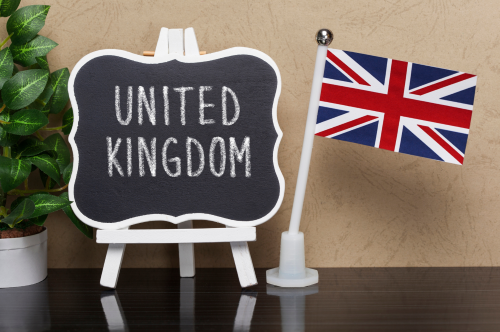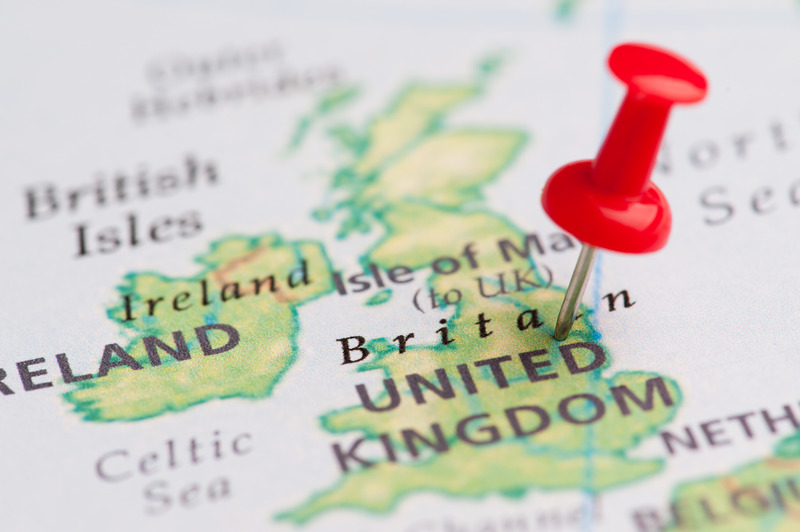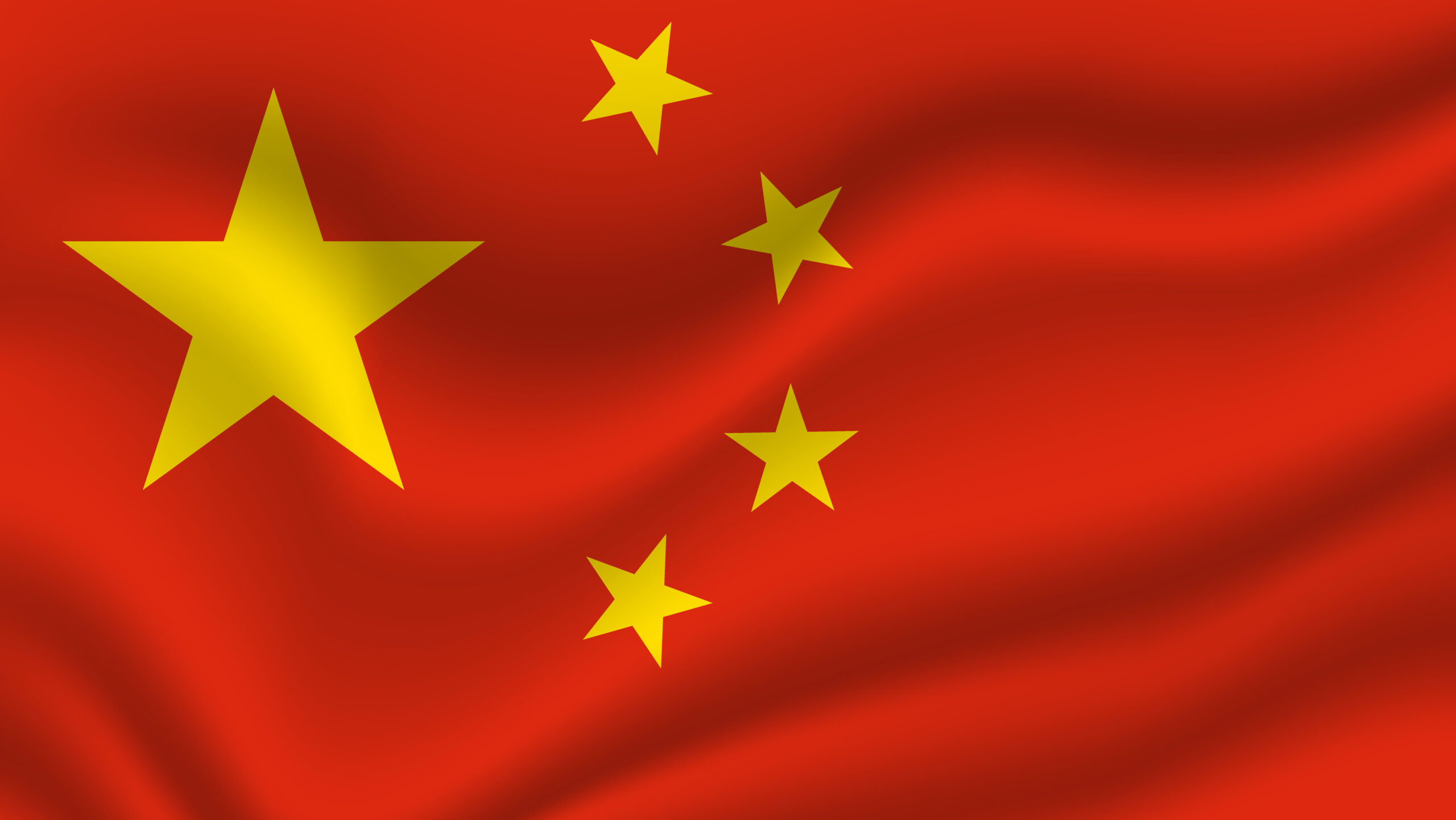Addressing the Question:

Do you need a UK Representative?
Following Brexit and recent practice changes before the UK Intellectual Property Office (UKIPO), there has been much discussion about the requirement for a valid UK address for service (AFS) in proceedings before the UKIPO. As a reminder, a UK AFS can be an address in the UK, Gibraltar, the Channel Islands, or the Isle of Man.
Over 2 million comparable trade marks and re-registered designs were created on 1 January 2021, but there are still many UK rights without a UK AFS, which suggests a lack of awareness of the potential risks. As such, we have summarised the position to provide clarity on this important point.
New applications
All new UK trade mark and design applications which are filed before the UKIPO are required to have a UK AFS. However, it continues to remain the case that new trade mark or design applications filed under international registrations via the Madrid Protocol or the Hague do not require a UK AFS at the time of filing. In such cases, a UK AFS will be required if the UKIPO raises an objection during examination. As a UK designation may become registered without a UK AFS, we strongly recommend appointing a UK AFS once the designation becomes registered, for the reasons discussed further below.
What about UK rights that do not have a UK AFS?
Not all UK trade marks and designs have a UK AFS and failure to have one could have serious implications for the holders of these rights, following a change to the UKIPO’s practice that was introduced earlier this year.
Which UK trade marks and designs are likely not to have a UK AFS?
- UK designations of international registrations for trade marks filed via WIPO or designs filed via the Hague. This tends to be the default position unless an issue arose during the prosecution of the UK designation or to defend the right in a challenge.
- Comparable trade marks and re-registered designs created on 1 January 2021. This is because the original EU rights were in some cases filed by representatives located in the EEA and not all of the cloned rights have been updated with a UK AFS.
New practice where the UK trade mark or design does not have a UK AFS.
Following a recent Appointed Person’s decision, the UKIPO has changed their practice in inter partes proceedings when handling applications to challenge or rectify a UK trade mark or registered design that does not have a valid UK AFS. This is to ensure proper service as required in terms of the UK Trade Mark and Design Regulations.
Example scenario:
A third party files an application to revoke a registered trade mark or to invalidate a registered design, filed under an international registration, where there is currently not a valid UK AFS on record, but there is an overseas representative.
In both of these scenarios, under the new practice, the UKIPO will issue a preliminary letter by post to the overseas representative recorded:
- Setting a one month deadline to appoint a valid UK AFS;
- Requesting confirmation of the holder’s intention to defend the application made; and
- Stipulating the consequences of non-compliance.
Once a valid AFS is recorded, the UKIPO shall proceed with service of the proceedings and the relevant time period to enter a formal defence will start.
What are the consequences of missing the one month deadline?
The time it takes for the post to reach the overseas representative will clearly depend on where that representative is located. However, considering the varying length of time it takes to deliver post internationally, factoring in potential delays during transit (including possible postal strikes), the risk for communications to get lost and then ultimately processed, a one month deadline is tight. It would not be surprising to find that in practice, right holders (or their representatives) are not able to meet this deadline.
If a UK AFS is not appointed within the one month deadline, the Registrar may consider the holder of the right does not intend to defend the application which may result in the registration of the trade mark or design being declared invalid or revoked.
Accordingly, appointing a UK AFS for UK registered rights removes the unnecessary risk of a possible loss of rights.

What about an EEA AFS?
The Withdrawal Agreement between the UK and EU following Brexit provides that for a period of 3 years from 1 January 2021, an AFS in the European Economic Area (EEA) is permitted, where contentious proceedings are started before 1 January 2024, in relation to:
- Comparable UK trade marks created from EU Trade Marks (not rights cloned from EU designations of international registrations); and
- Re-registered designs created from Registered Community Designs (not rights cloned from EU designations of international registrations).

NB: However, from 1 January 2024, an EEA AFS will no longer be accepted as a valid AFS for proceedings before the UKIPO.
This means that from 1 January 2024, the UKIPO will require a UK AFS to be appointed to handle all new inter partes proceedings where a UK trade mark or registered design is challenged. This would include trade mark oppositions, revocations and invalidations, as well as rectifications, and design invalidations. As such, from this date an EEA AFS will no longer be accepted even in these limited circumstances.
Why is a UK AFS important?
Aside from the obvious advantages of having a regulated UK representative who is appropriately qualified to advise on UK trade mark and design law and practice, we recommend appointing a UK AFS well before 1 January 2024 to reduce the risk of inadvertently losing registered rights or applications being deemed withdrawn through failure to respond in time to a communication which is posted by the UKIPO.
Contact us
If you still require an UK AFS for any trade marks or designs, please get in touch as we would be pleased to assist. We do not charge fees for taking over as representatives.
If you have any questions regarding the change in practice or UK trade mark or design law in general, please contact us. Our direct email addresses are [email protected] and [email protected].

Some welcome news for brand holders seeking to protect their trade marks in China. These new changes should help to reduce costs and streamline the process.

Photo courtesy of Shutterstock.com/Aleksandr Andreev
The China National Intellectual Property Administration (CNIPA) has introduced new regulations which set out when suspensions may be requested in trade mark cases. One of these will offer great relief for brand holders, as it concerns the suspension of a Review of Refusal.
Many brand holders have faced the common set-back of filing a trade mark application in China which is refused due to earlier conflicting trade mark(s). A common strategy to overcome this obstacle was to file a non-use cancellation action if the earlier trade mark(s) are subject to proof of use requirements.
However, up until now, it was not possible to suspend the Review of the refusal pending the outcome of the cancellation action and the Review case would run in parallel. Unfortunately, more likely than not, adverse decisions were made in relation to the Review case before a decision was reached in the cancellation action, resulting in the trade mark application being finally refused.
When faced with this scenario, brand holders previously needed to (a) file a Review against the refusal raised to their trade mark application, (b) file a cancellation action against the cited mark, and (c) file a “back-up” trade mark application in China. This was to ensure that, by the time the “back-up” application was examined, the cited mark would be cancelled and would not pose an obstacle to the new application.
Although this strategy may still be appropriate for some cases, the long-awaited change introduces a number of conditions which may be relied upon when requesting a suspension, especially in a Review case. It means that the Review proceedings in a trade mark application could be paused on request, pending the outcome of the decision in the cancellation action. Consequently, applicants can save on the additional filing charges, but it may also speed up the time it takes to secure registered rights in China.
This new change came into force on 13 June 2023, but we understand that it has retrospective effect to all current pending cases which fulfil the conditions to request suspension.
We have substantial experience in navigating various issues faced by clients in China and we are pleased to learn of this significant change which will have a positive impact for brand holders.
Please get in touch if you would like to know more about how we can help your business protect their valuable intellectual property rights in China.

